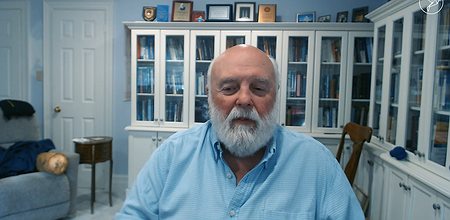This workshop includes theory as well as clinical examples. It includes videos ranging from 5-15 minutes in length. The PowerPoint of the workshop can be downloaded.
Dialectical Behavior Therapy informed treatment of Bipolar Disorder
Sheri Van Dijk, Psychotherapist
Best practices, techniques and exercises for treatment and evaluation of BD
Excerpt:
- 6h of continuing education
- 24 lessons that last from 5 to 15 minutes each
- 1 certificate of achievement
- 1 power-point
- 1 bibliography
- 1 course evaluation
- 4 months access - automatically extended until you complete the course
- 7-day money back guarantee
- 97% of participants who completed the satisfaction survey declare they would recommend this course to a colleague
Overview
Bipolar Disorder (BD) typically creates chaos in an individual’s life, making it challenging to diagnose and treat. Early detection is difficult as well as treatment adherence and intervention during episodes. Which information to deliver to your clients at which moment ?
A potential solution might be found in Dialectical Behavior Therapy (DBT). Known for its effectiveness in treating Borderline Personality Disorder, DBT addresses key issues such as emotion dysregulation, suicidality, impulsivity, interpersonal deficits and treatment non-adherence. These are all critical areas of focus in interventions for Bipolar Disorder.
Based on Sheri Van Dijk’s ground-breaking work on using DBT with Bipolar Disorder, this workshop reviews the diagnosis and different types of BD and explains all the DBT skills and tools that are relevant in treating BD.
Participants will receive information to help clients better understand their diagnosis. After a review of existing psychotherapies being used to treat bipolar disorder, Sheri will discuss the efficacy of DBT in treating this complex illness. The workshop will provide an overview of how to teach the more important DBT skills to clients with BD. A hands-on course complete with worksheets and exercises!
About the expert

Sheri Van Dijk has been working with clients using dialectical behaviour therapy (DBT) strategies for 20 years. She has written seven books on how to tailor DBT skills to a range of disorders. Her book DBT Made Simple was conceived to make DBT more accessible to therapists working with diagnoses other than borderline personality disorder. The Dialectical Behavior Therapy Skills Workbook for Bipolar Disorder is a guide for clients in using DBT skills to regulate emotion in their lives. Sheri is the winner of the 2010 R.O. Jones Award of the Canadian Psychiatric Association for her research on using DBT skills with bipolar disorder. She has extensive training in mindfulness and DBT and has been running DBT-informed groups since 2004. Sheri is a lively and experienced presenter who has led dozens of workshops in Canada and internationally on DBT skills. Her popular presentation on DBT for bipolar disorder draws on her extensive research and clinical experience helping clients who have this difficult diagnosis.
Learning objectives
- Improve their ability to help clients understand and accept their diagnosis
- Understand the rationale for using DBT in treating BD
- Be familiar with the main DBT skills used in treating BD including: re-regulating emotions, mindfulness and emotion regulation, radical acceptance, distress tolerance
- Understand considerations in providing group and individual DBT
Learning material
Syllabus
- PowerPoint
-
Providing psychoeducation to clients with Bipolar Disorder
- 1. Presentation
- 2. Bipolar disorder (BD) basics and the difference between mania and hypomania
- 3. Important informations about BD and the difference between Bipolar Disorder I and Bipolar Disorder II
- 4. Mixed episodes and rapid cycling
- 5. Psychosis and the relationship between misdiagnosis and race
- 6. Causes of BD, co-morbidities and acute suicidality
-
Treatment options
- 7. Pharmacotherapy for BD
- 8. Treatments for BD
- 9. Van Dijk's history with Dialectical Behavioral Therapy Dialectical Behavioral Therapy (DBT) and the basics of DBT
- 10. Assessment and psychoeducation
- 11. Monitoring- life chart, mood chart and tracking sheet
- 12. Mood symptoms worksheet and being aware of stigmas
- 13. Biosocial Theory
- 14. Dialectical philosophy and behavioral analysis
-
DBT skills to treat Bipolar Disorder
- 15. TIPP skills
- 16. DBT and mindfulness skills
- 17. The rational, emotional and wise mind
- 18. The -STRONG- skills
-
Nonjudgmental Stance
- 19. Practicing being in a nonjudgmental stance
- 20. The basics of radical acceptance
- 21. Self-validation and opposite action
- 22. Opposition part 2
- 23. Crisis survival skills
-
Considerations for group versus individual treatment
- 24. Group and individual DBT sessions
- Bibliography
CE Credits
Download a certificate of successful completion.
Audience
This training is intended for mental health professionals.
Registration
Ask a question
Do you have a question? Then email us at contact@asadis.net
Frequently asked questions
-
How long do I have access to the course?
After your registration, the course is accessible anytime and from anywhere for 124 days. And if that’s not enough, we’ll automatically extend your access.
-
When does the course start?
That is entirely up to you! When you buy a course, you'll receive an access link that you can activate when you want.
-
Is there a student rate?
Yes there is! To learn more, email us at contact@asadis.net.
Legal notice
The courses offered by ASADIS are accredited by different professional organisations. In addition, ASADIS is approved by the Canadian Psychological Association to offer continuing education for psychologists. ASADIS maintains responsibility for the program.
The CPA’s approval of an individual, group, or organization as a CE Sponsor or Provider is restricted to the activities described in the approved application or annual report form. The CPA’s approval does not extend to any other CE activity the Sponsor or Provider might offer. In granting its approval, the CPA assumes no legal or financial obligations to Sponsors, Providers, or to those individuals who might participate in a Sponsor or Provider’s CE activities or programs. Further, responsibility for the content, provision, and delivery of any CE activity approved by the CPA remains that of the CE Sponsor or Provider. The CPA disclaims all legal liability associated with the content, provision, and delivery of the approved CE activity.





